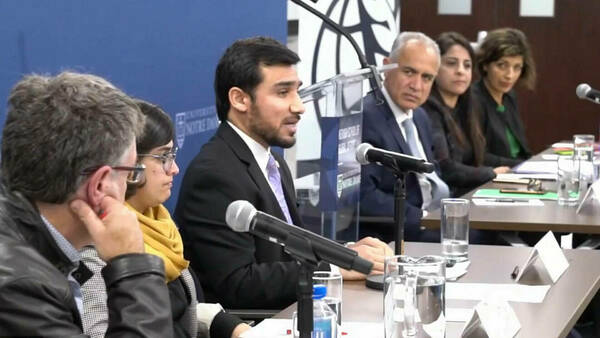Afghanistan Program for Peace and Development
Formally launched in March 2022, the Afghanistan Program for Peace and Development (AfPAD) casts a high profile spotlight on the voices of Afghan peace and development practitioners and scholars, both nationally and internationally.
The program works for and collaborates with those from Afghanistan and other interested individuals, groups, and governments to build lasting peace in the country. AfPAD seeks to identify opportunities and foster conditions for an inclusive political process in Afghanistan. Short term, it assists with negotiating humanitarian access. Sustainable development and aiding proposals for constitution-making negotiations serve as its medium-term goals, with its long-term aim being a political settlement and sustainable peace. As part of each of these goals, AfPAD seeks to improve human rights for women, girls, and other at-risk groups in Afghanistan.
With this vision, the past year has seen AfPAD convene approximately 50 leaders from different segments of the Afghanistan society, including women and men from diverse political and ethnic groups. AfPAD hosted and/or led 15 policy events, in a variety of formats: webinars, in-person forums, as well as Track II dialogues and briefings with international governments and organizations. The program also facilitated or supported the publication of six podcast episodes and 15 policy papers written by practitioners from Afghanistan. Topics focused on the status and future of the country’s political, humanitarian, and development landscapes. Throughout this work, AfPAD participants provided analysis and specific policy recommendations to both local and international stakeholders, which collectively addressed the many staggering crises in Afghanistan.

In recent news, Aref Dostyar, a 2016 master’s graduate from the Kroc Institute, joined the Institute full-time as AfPAD’s advisor and program leader after serving for a year as a consultant. Prior to the Kroc Institute, from 2020 to 2022, Dostyar had been posted as Afghanistan’s Consul General in Los Angeles. Before that, he served at Afghanistan's Office of the National Security Council in the positions of Director General for International Relations, and Regional Cooperation and Director of Peace and Reconciliation Affairs.
Another Kroc Institute Master’s alum from Afghanistan – Malalai Habibi (2019), who earned her Master of Global Affairs in International Peace Studies – also serves as advisor to AfPAD in addition to being the program officer for the International Civil Society Action Network. The program is also supported by Roqia Samim, a senior research associate of the Human Rights L.L.M. program at Notre Dame's Law School.
Meanwhile, Kroc Institute faculty members and others engaged with AfPAD over the past year include:
-
Josefina Echavarría Alvarez, professor of the practice and Peace Accords Matrix (PAM) director;
-
David Cortright, professor emeritus of the practice;
-
Madhav Joshi, research professor and PAM associate director;
-
Ebrahim Moosa, Mirza Family Professor of Islamic Thought and Muslim Societies, Keough School of Global Affairs;
-
Laurie Nathan, professor of the practice and Kroc Institute Mediation Program Director;
-
Lisa Schirch, Richard G. Starmann, Sr. Professor of the Practice of Peace Studies; and
-
Ray Offenheiser, formerly the director of the Pulte Institute for Global Development.